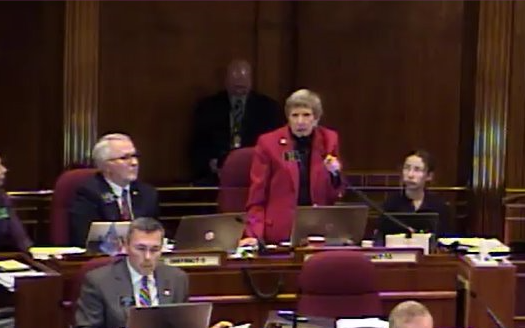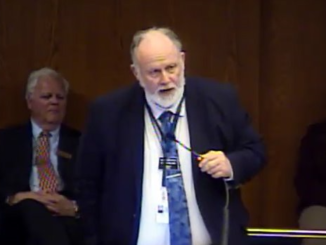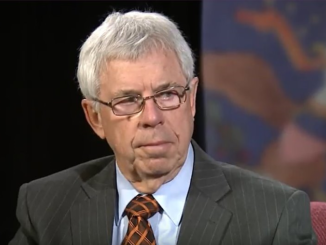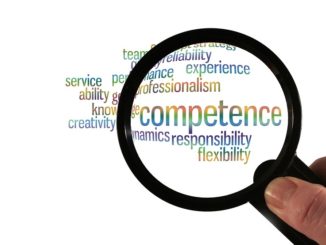
About a month ago, I was interested in doing an open records request in relation to a member of the North Dakota Legislature’s e-mail communication. I won’t get into the issue, who was involved, or the reason for my interest in making the request, but suffice it to say that I think it would have shed some much needed light on what I found to be a very troubling situation. Unfortunately, I was informed that our legislators are exempt from such requests.
I will admit to some degree of astonishment at discovering this carve out in the state’s open records law. I suppose I should have known about the exemption, but the law in relation to this issue in North Dakota is somewhat complex— and extensive. If you don’t believe me, you can view the 59-page Open Records Manual that explains these things. It’s a valuable tool.
On page 37 of that document you will find this:
“The 1989 Legislature declared certain legislative records and information exempt from the open records law. These are records of a purely personal and private nature, a record that is legislative council work product or is legislative council-client communication, and records that reveal the content of private communications between a legislator and any person and a record of telephone usage. This exemption only applies to records of the Legislative Council and the Legislative Assembly or its members.”
Overall, if you review pages 22-39 of the Open Records Manual, you’ll see nearly 18 pages of examples of exemptions to the law. And I think you’d agree with me that much of what’s listed in those pages actually makes sense to exempt. But to suggest that the Legislature should get special treatment that other governmental employees do not enjoy seems somewhat troubling to me. Yet, that’s the reality of what this one little paragraph — amongst 59 pages — explains.
When I first read the aforementioned information found on page 37, I felt the language wasn’t exactly clear. For example, who gets to determine if a record is “purely personal and private [in] nature”? What’s considered “private communication”? What about the differentiation between a legislator and other government entities they might be communicating with?
Apparently I’m not the only one who thought there wasn’t enough clarity on this issue. Senator Judy Lee (R – District 13) thinks the same as well. Only her resolution was to propose Senate Bill 2221, which would clarify the law by making it even more expansive.
Under Senator Lee’s version of SB 2221, it would clarify the law by striking out the word “private”. This would leave the exemption to read:
“A record that reveals the content of communications between a member of the legislative assembly and any person…”
And then it would add this:
“The exception in subdivision c of subsection 1 applies to records possessed by a member of the legislative assembly or by any other public officer or employee.”
So, in other words, the exemption wouldn’t just apply to “private” communication anymore, but all communication. And it wouldn’t just apply to the Legislative Assembly any longer either, but to “any” public officer or employee who might have communicated with a member of the Legislative Assembly.
As the bill worked its way through the committee process in the Senate, it ended up being amended. What the amendment sought to accomplish was to actually place some limitations on the exemption. This was done by adding language that the exemption would only apply to a record that:
“… concerns litigation, legislation, or liability involving the public employee or a public entity.”
Apparently those limitations were too restrictive for Senator Lee. She rose during floor debate on the bill and expressed her intent to vote against the bill because of the amendments— which she did. You can see her comments here. Yet, even with Lee opposing the bill, it still passed the Senate on a vote of 30-17.
Here’s the kicker though. When the House Government and Veterans Affairs Committee received the bill, they too amended it— back to the original expanded form of Senator Judy Lee. Then the House passed it yesterday on a vote of 82-5.
Because the bill was amended on the House side, it will now go to Conference Committee and the Senate and House will have to hammer out their differences. But if it’s allowed to stand in its current form, the public will have no access to any communication by our legislators. How’s that for transparency in government?
You might be interested to know that under current law the Attorney General is actually prohibited from even reviewing alleged violations of open records laws in relation to the Legislative Assembly. If you don’t believe me, take a look at this from page 17 of the Open Records Manual:
“Any interested person may request an Attorney General’s opinion to review an alleged violation of the open records law by any public entity other than the Legislative Assembly or any committee thereof.” (Emphasis Added)
I don’t know how you feel about it, but this seems a bit problematic to me.
Whether it was 1989 or 2019, it seems the vast majority of the Legislature somehow think they should get special treatment when it comes to transparency through open records requests. As I said before, I understand the need for some exemptions. But this is downright ridiculous.
Having said all of this, I recognize that open records laws are a difficult thing to enforce. To be honest, in some cases, it borders on impossible. For example, if a government entity receives a request for e-mail communication, and that e-mail has been deleted, there’s no recourse for the requestor. All the entity receiving the request has to do is respond that the record is no longer available. It’s a reality someone like Hillary Clinton would be proud of.
I don’t pretend to have the perfect solution to inadequacies in our open records laws. But I do know this— the best government is a transparent one. And in its current form, SB 2221 most definitely falls short of that. Because of this, we should do whatever we can to ensure that it doesn’t become law.
Let us know your thoughts. Do you think the Legislative Assembly should have this kind of exemption?
PLEASE LIKE & SHARE!
Sources:
- https://attorneygeneral.nd.gov/sites/ag/files/documents/OpenRecordsManual.pdf
- https://www.legis.nd.gov/assembly/66-2019/bill-index/bi2221.html
- https://www.legis.nd.gov/assembly/66-2019/documents/19-0021-02000.pdf
- http://video.legis.nd.gov/en/PowerBrowser/PowerBrowserV2/20190330/-1/11088?startposition=20190218140933





